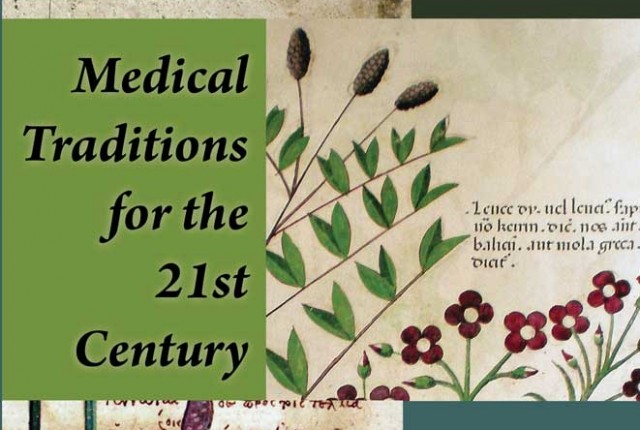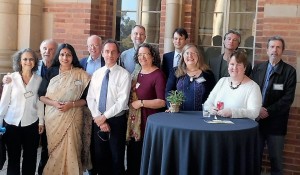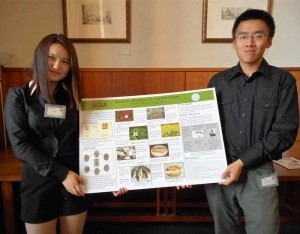
Can traditional medical experience, knowledge and wisdom help rethink present-day medicine? That was the question asked by an international panel of scholars, scientists, physicians, and practitioners at “Medical Traditions for the 21st Century,” a two-day conference held at UCLA, February 27-28, 2016. These experts crossed the borders of traditionally defined disciplines to look at this topic synergistically.
Convened by Dr. Alain Touwaide (Institute for the Preservation of Medical Traditions/UCLA), the symposium opened by reflecting on what medical traditions are, how they work, what their driving forces are, how they can be collected, and how their information can be decrypted and analyzed.
 Young scholars and internationally renowned specialists illustrated the current knowledge of different medical traditions, whether characterized by an abundant ancient written record or an active oral tradition and practice: Greek medicine, Ayurveda, traditional Chinese medicine, and the healing wisdom of indigenous North Americans. The scholars and specialists also examined the challenges of information collection and management, the historical development of research on ancient medical traditions, overharvesting in the wild and its environmental impact, and cases combining traditional therapies with Western medicine.
Young scholars and internationally renowned specialists illustrated the current knowledge of different medical traditions, whether characterized by an abundant ancient written record or an active oral tradition and practice: Greek medicine, Ayurveda, traditional Chinese medicine, and the healing wisdom of indigenous North Americans. The scholars and specialists also examined the challenges of information collection and management, the historical development of research on ancient medical traditions, overharvesting in the wild and its environmental impact, and cases combining traditional therapies with Western medicine.
Excitement was palpable among the large audience which reflected a variety of diverse disciplines. Attendees came from the fields of education, research (public and private), herbalism, natural resources, policy-making and regulation, pharmacology, environmental sustainability, biodiversity protection, medical practice, and natural and traditional medicines. Students from many disciplines were eager to know about the future of medicine and they presented posters on related topics.
“Medical Traditions for the 21st Century” was a milestone in the current attempts to bring medicine back from reductionism to holism and from disease to wellness. UCLA can become the laboratory of this new approach, by reaffirming that “all of us need to come together to transform the current way we think and to move this further to the youngest generation.”
The attendees resolved to open a conversation between mainstream and traditional medicine, to empower medical traditions to survive, and to move these traditions into the current practice of medicine. It is hoped to reconvene in the future, to expand the range of traditions under consideration, to examine more topics from a wider range of disciplines, and to disseminate the findings and proceedings to have an increased impact.

